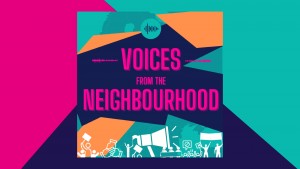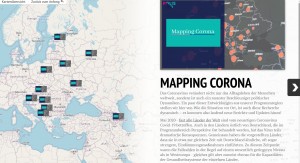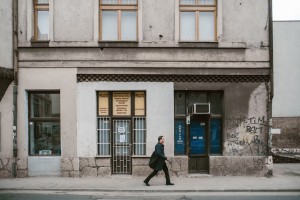PROGRAMM
PERSPEKTIVE OST
Der Programmbereich Perspektive Ost beschäftigt sich mit Mittel-, Ost- und Südosteuropa, Russland, dem Kaukasus und Zentralasien. Wir wollen die (außen)politischen Beziehungen Deutschlands und Europäischen Union zu den Ländern dieser Region verstehen, erklären und mitgestalten. Dazu betrachten wir Außenpolitik aus einer Vielzahl regionaler, thematischer und (inter)disziplinärer Perspektiven.
In der Auseinandersetzung mit Ländern dieser diversen, aber oft als “post-sowjetisch” pauschalisierten Region möchten wir Klischees überwinden und stattdessen einen differenzierten Blick nach Osten werfen. Wir möchten mit Menschen reden, statt nur über sie, und besonders junge Stimmen zu Wort kommen lassen. Damit wollen wir den politischen Diskurs in Deutschland, Europa und unserer Zielregion über die politischen Eliten hinaustragen und zum Gegenstand eines zivilgesellschaftlichen Austauschs machen.
UNSERE TREFFEN
Gegenwärtig treffen uns alle vier Wochen auf Zoom. Unser nächstes Treffen findet am Dienstag, den 26.04. statt. Du kannst dich per Mail an die Programmleitung anmelden. Unsere monatlichen Programmtreffen sind öffentlich und wir freuen uns immer über neue Gesichter und Perspektiven! Kommt vorbei!
Weitere Veranstaltungen findest Du auf der Veranstaltungsseite von Polis180.
space
DU WILLST MITGESTALTEN? Dann melde dich bei den Programmleiter*innen!
space

Julian Brummer
E-Mail: julian.brummer@polis180.org

Nora Pohl
E-Mail: nora.pohl@polis180.org
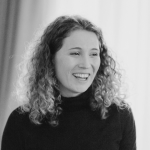
Mona Richter
E-Mail: mona.richter@polis180.org
space
UNSERE PROJEKTE
#GEONext – Partnerships for Youth Engagement
Through our joint project #GEOYOUTH2020, Polis180 and GIP have identified challenges for young people in Georgia to get involved in politics and its solution approaches to civic engagement, resulting in a jointly drafted Youth Manifesto. Building on this successful interaction, #GEOYOUTH2021 focused on providing training and funds for the youths to implement their own ideas and projects in their local communities. In total, 8 subgrant groups have organised trainings, research and discussions raising awareness for issues of local governance and youth engagement across Georgia. While the group reports are still pending, the results so far exceeded our expectations.
As power is traditionally centralised in the national government, reforms to local governance have been crucial to enable direct political participation of citizens and strengthen the role of smaller parties. Participation in local elections is especially low among young people, not least due to a lack of trust in political institutions and a lack of knowledge of how to engage in politics on a municipal level. As we learned in the process of supporting local projects in rural communities, it is here that these actions have the most direct impact, which is why continued support is crucial to ensure democratic resilience and sustainability – especially given the ongoing political turmoil on the national level. Increased citizen participation requires raising civic awareness, building capability and confidence of various strata of Georgian society to be engaged in democratic life, and encouraging social activism beyond the formal civil society sector. This is precisely where #GEONext sets off.
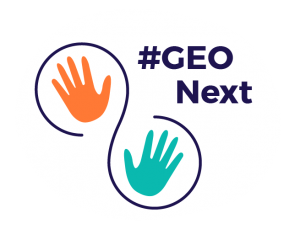 If young people are not actively involved in politics, important negotiation processes towards a pluralistic society are inhibited. Therefore, it is vital that this generation – the first one to grow up in a democratic system – is prepared for the discourses constituting it. This also resonates with the Georgian National Youth Policy Concept for 2020 – 2030 (For, With and By Young People), naming Active Participation of Young People in Public Life and Democratic Processes as its first priority.
If young people are not actively involved in politics, important negotiation processes towards a pluralistic society are inhibited. Therefore, it is vital that this generation – the first one to grow up in a democratic system – is prepared for the discourses constituting it. This also resonates with the Georgian National Youth Policy Concept for 2020 – 2030 (For, With and By Young People), naming Active Participation of Young People in Public Life and Democratic Processes as its first priority.
The European Union has initiated the Eastern Partnership program in order to support these national processes, notably civil society and youth: As Ambassador Hans-Jürgen Heimsoeth emphasised during our panel discussion, young people hold a key position to ensure resilience of democratisation processes but lack representation and participation. Following up on #GEOYOUTH2020 and #GEOYOUTH2021, we therefore want to take the proven methodology and networks gained from this successful interaction with youth across Georgia to the next level. Together with mentors, experts and German youth representatives, we want to advance civil society cooperation, broaden the understanding of civil society on all sites and highlighting the importance of social corporate responsibility and public-private partnership for sustainable and impactful civic engagement.
Podcast I Voices from the Neighbourhood
Check out Perspektive Ost’s very first podcast!
Podcast (voicesfromtheneighbourhood): Play in new window | Download
Subscribe: RSS
As part of the grassroots think tank Polis180, which has a great network across the whole of Europe, we are convinced that an exchange of opinions, strategies and experiences can help a lot to put progressive issues on the political agenda in Europe.
In order to promote this exchange, we want to introduce various actors, activists and organizations that work on progressive issues in our immediate eastern neighborhood. For our first three episodes, we will look at environmental activism, which is currently receiving a lot of attention throughout Europe and the world.
How global are the issues tackled by Fridays for Future? What problems do environmental activists face for example in Kyrgyzstan, Ukraine or Russia? What can we learn from organizations that stand up for climate justice in our Eastern Neighbourhood? We will try to find answers to these questions and as it says in the name of our podcast, we want the voices from the neighbourhood to be heard.
About this episode
Where does Russia stand on waste separation? What do citizens think and how are other actors engaging with the topic? In this episode Anastasiya Kuvshinova talked with us about Razdelny Sbor, an organization promoting waste separation in Russia.
Further information
For more information on Razdelny Sbor (or in English: Association for Ecology and Environmental Protection «Separate Waste Collection») you can visit their website or follow them on Facebook and Instagram.
#diversityEUnited
young minority voices in political decision and social change making
(Germany | Georgia | Ukraine)
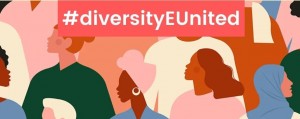
The organizations Polis180 (Germany), Bridge of Friendship Kartlosi (Georgia) and Ideas for Change (Ukraine) are organizing a trinational online youth exchange, focusing on the rights of minorities and young peoples’ ways to exercise these rights. We want to foster dialogue between different minority/marginalized groups in Europe, empower young people to develop their own ideas and support them in implementing innovative projects evolving around these topics. Through a series of online workshops, 45 young people from Germany, Georgia and Ukraine who identify as part of a minority or marginalized group, will learn about their rights, discuss about common opportunities and challenges, dive deeper in their local context, get to know techniques of project development and finally implement their own projects in small groups.
Further information
For more information, please visit our project website.
Our supporters
The project is funded under the grant program “MEET UP! Youth for Partnership” by the Remembrance, Responsibility and Future (EVZ) Foundation and the Federal Foreign Office and by the Freundinnen und Freunde der Heinrich-Böll-Stiftung.
Mapping Corona 2.0
Die Pandemie und ihre Konsequenzen von Osteuropa über den Südkaukasus bis nach Zentralasien
Vor nicht ganz einem Jahr haben wir als Programmbereich “Perspektive Ost” versucht, mit dem Projekt #mappingcorona eine länderübergreifende Übersicht zu schaffen, um die Wirren der aufkommenden Corona-Pandemie einzuordnen, zu vergleichen, zu verstehen. Nach mittlerweile einem Jahr ist die Pandemie noch immer allgegenwärtig. In jedem Land der Welt hat COVID-19 Einfluss auf das politische, wirtschaftliche sowie gesellschaftliche Leben genommen. Auch die Länder unseres Programmbereichs sind von diesen Dynamiken betroffen. Daher wollen wir diesen Zeitpunkt nutzen, um die aktuellen Entwicklungen nach einem Jahr Corona-Pandemie darzustellen.
Hier findest du die Storymap!
Event Series I Belarus: A nervous system?
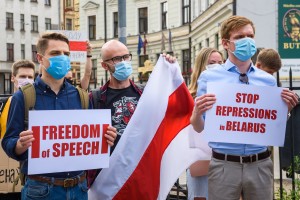
In July and August 2020, we invite you to join us for our event series “Belarus: a nervous system?” to follow the developments in Belarus evolving around the presidential elections on August 9, 2020. Within three consecutive events, we do not only want take a deeper look at the repressive state action and police violence against President Lukashenka’s political opponents and their supporters, but we also want to understand the wave of solidarity and activism that is emerging throughout the country. Moreover, we will take a dive into the foreign dimension of the election and its impact on relations between East and West.
In case you missed the discussions, take a look at them on YouTube:
1. Online Discussion I Belarus: a nervous system? July 9, 2020
2. Online Discussion I Belarus: a nervous system? The foreign policy dimension. August 3, 2020
3. Online Discussion I Belarus: a nervous system? After the elections. August 18, 2020
This series is a joint project by Polis180, the Konrad-Adenauer-Stiftung Belarus and the Zentrum Liberale Moderne.
___________________________________________________________________________________________________
Eastern Partnership – Eastern Perspectives
The EU’s Eastern Partnership from a grassroots perspective: What are young people’s thoughts in Partnership countries? How is the EaP perceived? What needs to be done?
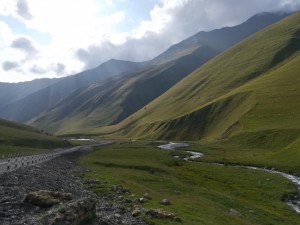
Armenia, Azerbaijan, Belarus, Georgia, the Republic of Moldova, and Ukraine are the European Union’s Eastern Neighbours – a region in motion, especially in the light of contemporary developments in East-West relations. What is the relationship the European Union (EU) seeks with these actors, and how do they navigate their interests on the geopolitical marketplace the region is subject to? With the 10th anniversary of the Eastern Partnership we are now at a turning point which will determine relations in the years to come. This should motivate us to strive for a comprehensive picture of what is going on: from different perspectives!
Click here to get to the project!
___________________________________________________________________________________________________
POLIS TEATIME
Taking Stock of Moldova’s ‘Old New’ Government
19 November 2019 | 18.30 – 20:30
with Dr. Cristina Gherasimov
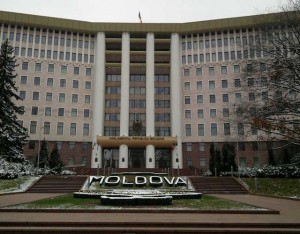
In November 2019, Moldova was confronted yet again with political uncertainty and instability sending “worrying signals for the reform process in the country” according to EU spokeswoman for EU Foreign Affairs & Security Policy Maja Kocijancic. We wanted to understand which factors led to the dismissal of Sandu’s government? What were the internal party power dynamics? What has the Sandu government achieved regarding Moldova’s reform process? What were the biggest constraints to reforms? What happened with the former political elite in the meantime and have the state institutions really been de-politized? And most importantly: What can we expect to happen next? We were happy to have had Dr. Cristina Gherasimov, research fellow at DGAP and expert on political transformation processes in Eastern Europe, with us, who shared her knowledge and expertise on the socio-political developments in Moldova.
___________________________________________________________________________________________________
EVENT: „Ukraine in Histories and Stories“
Presentation and discussion of the book “Ukraine in Histories and Stories: Essays by Ukrainian Intellectuals” at ostPost Berlin, on October 16, 2019
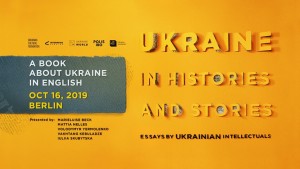
The book “Ukraine in Histories and Stories: Essays by Ukrainian Intellectuals” is a collection of texts by contemporary Ukrainian intellectuals: writers, historians, philosophers, political analysts, opinion leaders. The texts have been written for an international audience. The collection combines reflections on Ukraine’s history (or histories) and analysis of the present, conceptual ideas and life stories. The book presents a multi-faceted image of Ukrainian memory and reality: from the Holodomor to Maidan, from Russian aggression to cultural diversity, from the depth of the past to the complexity of the present.
With us were:
- Iuliia Skubytska: Ukrainian historian & expert at Internews Ukraine;
- Vakhtang Kebuladze: Ukrainian philosopher;
- Volodymyr Yermolenko: Ukrainian philosopher & editor at UkraineWorld.org.
- Marieluise Beck, co-founder of the Zentrum Liberale Moderne
Mattia Nelles, Ukraine expert at the Centre for Liberal Modernity, hosted the evening.
- The event was organized in cooperation with LibMod – Zentrum Liberale Moderne and Polis180.
___________________________________________________________________________________________________
POLIS KOCHT!
70 Jahre NATO – eine Bilanz aus osteuropäischer Sicht
Das 70. Jahresjubiläum der NATO und die jüngste öffentliche Debatte zum Zustand der Allianz haben wir am 30. November 2019 zum Anlass genommen, Bilanz zu ziehen. Aus osteuropäischer Perspektive haben wir gemeinsam mit dem polnischen Generalkonsul Andrzej Osiak bei Piroggen, Vinegret und Mizeria diskutiert, wie die NATO heute in Mittelosteuropa wahrgenommen wird und welchen Beistand das Bündnis zur Sicherheit der Region leisten kann.
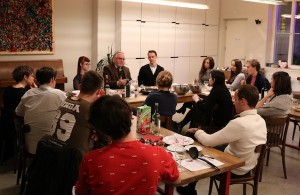
Der Umgang mit Russland und die Entwicklung der Allianz an ihren östlichen Grenzen standen dabei im Mittelpunkt. Für die mittelosteuropäischen und baltischen Allianzmitglieder, wie u.a. Polen, ist die von Russland wahrgenommene Bedrohung zentrales Anliegen.
Angesichts des bevorstehenden NATO-Gipfels am 3. Dezember in London sprachen wir auch über die zahlreichen internen Herausforderungen des Bündnisses. Die andauernde Grundsatzdebatte der Allianz über die Klassifizierung der Bedrohungen und strategischer Ausrichtung ist nicht zuletzt Folge interner Differenzen in der Einstufung von Gefahren und Wahrnehmungen von Sicherheit.
Abschließend ging es auch um die Perspektive der weitervoranschreitenden NATO-Osterweiterung mit den kürzlichen Beitritten Montenegros und Nordmazedoniens. Die Hoffnungen der Ukraine und Georgiens hingegen bleiben vorerst offen.
- Die Veranstaltung war Teil der Reihe POLIS KOCHT! Außen- und Europapolitik geht durch den Magen
- Die Veranstaltung fand statt in Kooperation mit der Petra-Kelly-Stiftung.
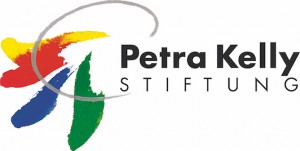
______________________________________________________________________________________________
POLIS KOCHT!
Die Westbalkan-Staaten nach den EU-Wahlen
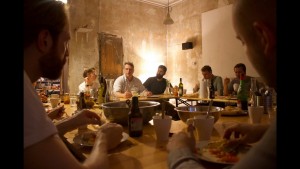
Am 29. Juli haben wir gemeinsam den Blick in die unmittelbare europäische Nachbarschaft gerichtet: die Westbalkan-Staaten Nordmazedonien, Albanien, Serbien, Montenegro, Bosnien und Kosovo. Zusammen mit Thomas Ossowski diskutierten wir insbesondere, welchen Einfluss der Ausgang der Europawahlen auf die Beziehungen zur EU hat. Dazu gab es u.a. Ajvar, Burek & vegetarische Cevapcici.
Unser Fazit: Die Erweiterungsdebatte innerhalb der EU muss in den europäischen Gesamtkontext eingeordnet werden. Hierbei gilt es, die Perspektive aller EU-Mitgliedstaaten miteinzubeziehen, die teilweise sehr unterschiedliche Meinungen zur potentiellen EU-Erweiterung haben. Um die jeweiligen Beweggründe der Mitgliedstaaten nachvollziehen zu können, ist ein Blick in die innenpolitischen Gegebenheiten der einzelnen Länder unerlässlich. Die daraus resultierenden Sorgen bzgl. EU-Erweiterung müssen ernst genommen werden. Auch in Deutschland herrscht Uneinigkeit, wie mit der Erweiterungsdebatte umzugehen ist. Eine besonders positive Einstellung birgt auch das Risiko, bei Deutschlands wichtigstem Partner innerhalb der EU, Frankreich, anzuecken. Die Perspektive auf eine Mitgliedschaft ist in vielen (potentiellen) Bewerberstaaten ein wichtiger Anreiz, um interne Reformen voranzutreiben. Dies gilt insbesondere für die Bereiche der Rechtsstaatlichkeit, aber auch Wirtschaftsreformen sind nicht zu vernachlässigen. Mit einem Blick auf die aktuelle Gefährdung von Gewaltentrennung & Rechtstaatlichkeit in einigen EU-Mitgliedsländern ist es von besonderer Wichtigkeit, dass Reformen in den jeweiligen Ländern nachhaltig & dauerhaft umgesetzt werden. Die EU sollte Ihre Glaubwürdigkeit nicht gefährden, indem sie den Bewerberstaaten unrealistische Versprechungen macht. Wenn auch nicht kurzfristig, so sollte den Bewerberstaaten doch langfristig eine realistische Beitrittsperspektive gegeben werden. Dies ist auch insofern relevant, als dass der Balkan bereits von bspw. China & Russland umworben wird, und ein geopolitisches Kräftemessen in der Region vermieden werden sollte.
- Die Veranstaltung war Teil der Reihe POLIS KOCHT! Außen- und Europapolitik geht durch den Magen
Polis Teatime goes n-ost!
Die Enthüllungen der China Cables in den deutschen Medien.
Eine Polis Teatime bei der Berliner Medien-NGO n-ost, mit Dr. Anastasia Vischnevskaja und Jan Vollmer.
Vollmer.
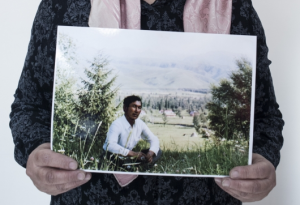
Kulyash Baykery lebte seit 1999 mit ihrem Ehemann in Kasachstan. Als ihr Mann im April 2018 nach China reiste, wurde ihm an der Grenze vorgeworfen, Spendengelder für den Bau einer Moschee in China zu sammeln. Er wurde in ein Umerziehungslager gebracht. Seit seiner Inhaftierung haben die beiden keinen Kontakt mehr.
Das Foto stammt aus einer Serie des russischen Fotojournalisten Konstantin Salomatin für das n-ost Magazin Ostpol. Die Verfolgung ethnischer und religiöser Minderheiten durch den chinesischen Staat ist kein neues Phänomen, 2019 haben aber das Ausmaß und das systematische Charakter dieser Verfolgung auch die Öffentlichkeit in Westeuropa erreicht. Die so genannten China Cables belegen eindrücklich, wie die Regierung massenhaft Menschenrechte missachtet und unter dem Vorwand der Terrorismusprävention ganze Volksgruppen in so genannte „Umerziehungslager“ sperrt.
Wie wird dieses Thema in deutschen Medien behandelt und welchen Einfluss hat diese Berichterstattung auf Außenpolitik in Deutschland und Zentralasien? Darüber haben wir mit euch und unseren Gästen im informellen Rahmen der Polis Teatime diskutiert.
Lest den spannenden Veranstaltungsbericht hier!
DIASPORA!
Die neue Serie über junge Menschen in Deutschland, die sich aus Gruppen nationaler Minderheiten heraus engagieren.

„Ende 2018 waren rund 10,9 Millionen Personen mit ausschließlich ausländischer Staatsangehörigkeit im Ausländerzentralregister (AZR) erfasst“, teilte das Statistische Bundesamt (Destatis) im April 2019 mit. Das Bundesamt weiß, wie viele Männer und Frauen mit ausländischem Pass in Deutschland leben, wie alt sie sind und wie lange sie bereits hier leben. Fotos oder Geschichten gibt es keine, der Blick in die Herkunftsländer fehlt.
Wer an dieser Stelle anmerkt, das sei schließlich nicht die Aufgabe des Statistischen Bundesamtes, hat sicher recht. Genauso wahr ist es aber, dass nüchterne Zahlen im Alltag oft komplexe Biografien von Menschen verdecken, die neben Deutschland noch andere Länder als ihre Heimat verstehen – oder Begriffe wie „Heimat“ und „Diaspora“ aus der eigenen Erfahrung heraus grundsätzlich ablehnen.
In unserer neuen Videoserie stellen wir euch ab sofort regelmäßig junge Menschen vor, die sich einmischen und ihren Stimmen über Statistiken und Klischees hinaus Gehör verschaffen. Wir suchen den Dialog auf individueller Basis und in enger Absprache mit den ProtagonistInnen, die sich und ihre Anliegen vorstellen. Daraus ergibt sich kein Gesamtbild dessen, was „Diaspora“ in Deutschland bedeutet – vielmehr wird die Vielfältigkeit und teils Widersprüchlichkeit individueller Biografien wie auch gesellschaftlicher Diskurse deutlich.
Mehr Informationen und die einzelnen Folgen findet ihr hier.
_____________________________________________________________________________________________
PROJECT: Ukrainomics
Enhance the Economic Debate in Ukraine!
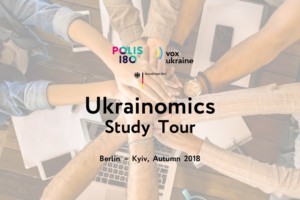
Polis 180 and VoxUkraine (Kyiv) are implementing a project aiming at broadening and intensifying the economic debate in Ukraine. The Revolution of Dignity and War in Donbass have become a catalyst for serious transformations in society. However, Ukraine still lacks an intensive public discussion of the shortcomings and benefits of the proposed reformist course and its possible alternative options. An evidence-based analysis and an in-depth debate about economic and social policy will improve the quality of economic decisions in Ukraine and have a positive impact on the welfare of millions of Ukrainians. And it is crucial in terms of involving the population in the reform process.
Within the framework of two workshops in Berlin and in Kyiv, we strive to look at the key problems of the Ukrainian economy from different perspectives, reasonably consider all the pros and cons of specific decisions, and introduce project participants to new economic concepts and debates.
- Project term: 01 September 2018 – 31 December 2019
- For more information on this project click here.
_____________________________________________________________________________________________
PROJECT: #GEOEUvalues
Between a Rock and a Hard Place?
Georgian, German and French Perspectives on European Values and Euro-Atlantic Integration

Polis180, the Georgian Institute of Politics (GIP, Tbilisi) and Argo (Paris) implemented a joint project on European values and ways of better anchoring them in the Georgian and the EU’s societies. The European Union is being increasingly challenged by populist and Eurosceptic forces, and European values are clearly under threat in several EU member states. In Georgia, the Association Agreement with the EU is being implemented and the country is moving closer towards Europe in many ways. Nevertheless, challenges remain in the face of both external and internal threats, for instance regarding the safeguarding of human rights.
Thus, in the framework of their project #GEOEUvalues, Polis180, GIP and Argo examined: What are the main challenges to European values in Georgia and in the EU? What are European values in the first place? How can we foster European values in the EU and the Eastern Partnership countries? What is the relationship between European values and EU accession?
- Project term: 01 June – 31 December 2018
- For more information on this project click here.
